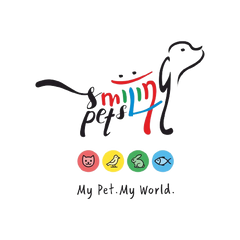Vegan and Vegetarian Dog Food Options: A Comprehensive Guide
The rise of vegan and vegetarian lifestyles has extended beyond human diets, with many pet owners exploring plant-based options for their canine companions. Whether motivated by ethical, environmental, or dietary considerations, vegan and vegetarian dog food options can offer a viable alternative for dogs when formulated correctly. In this guide, we delve into the essentials of plant-based diets for dogs, their benefits, potential challenges, and tips for selecting the best options.
Understanding Plant-Based Diets for Dogs

Dogs are omnivores, meaning they can thrive on a balanced diet that includes both animal and plant-based ingredients. While traditional dog food often includes meat as a primary protein source, vegan and vegetarian options rely on plant-derived proteins and nutrients to meet a dog’s dietary needs.
-
Key Nutritional Requirements for Dogs
Regardless of whether a diet is plant-based or meat-based, dogs require certain essential nutrients, including protein, amino acids (like taurine and L-carnitine), vitamins, minerals, and fatty acids. Proteins, which are critical for muscle repair and overall health, can come from plant sources such as lentils, chickpeas, quinoa, and soy. Essential fatty acids like omega-3s can be derived from flaxseed, algae oil, and chia seeds. However, careful formulation is required to ensure that these diets meet the specific nutritional needs of dogs at different life stages.
-
The Difference Between Vegan and Vegetarian Dog Food
Vegetarian dog food excludes meat but may still contain animal-derived ingredients like eggs or dairy, which provide valuable protein and nutrients. Vegan dog food, on the other hand, eliminates all animal-derived ingredients, relying entirely on plant-based sources to deliver complete nutrition.
Benefits of Vegan and Vegetarian Dog Food

Plant-based diets for dogs offer several benefits when implemented thoughtfully and with the right formulations.
-
Ethical and Environmental Considerations
For pet owners who follow a vegan or vegetarian lifestyle for ethical reasons, plant-based dog food aligns with their values by avoiding the use of animal products. Additionally, plant-based diets have a smaller environmental footprint, as they require fewer natural resources and produce less greenhouse gas emissions compared to meat-based diets.
-
Allergy Management
Some dogs have food sensitivities or allergies to common animal proteins like chicken, beef, or lamb. Switching to a plant-based diet can help alleviate symptoms such as itching, digestive upset, or ear infections by avoiding these allergens.
-
Weight Management and Digestive Health
Plant-based dog foods are often lower in saturated fats, which can support healthy weight management. They are also rich in dietary fiber, which promotes healthy digestion and can help prevent issues such as constipation or bloating.
Challenges of Plant-Based Diets for Dogs
While vegan and vegetarian dog foods can be healthy options, there are certain challenges to consider.
-
Ensuring Nutritional Completeness
One of the most critical challenges is ensuring that the food provides all essential nutrients in the right proportions. Dogs require specific nutrients like taurine, which is naturally abundant in meat but less common in plants. Many high-quality vegan and vegetarian dog foods address this by supplementing their formulas with synthetic taurine and other nutrients.
-
Individual Dog Tolerance
Not all dogs adapt well to a plant-based diet. Some may experience digestive issues or reluctance to eat if they dislike the taste or texture of the food. It’s important to monitor your dog’s health, energy levels, and stool quality when transitioning to a new diet.
Popular Vegan and Vegetarian Dog Food Brands
Several reputable brands offer nutritionally complete vegan and vegetarian dog food options.
-
V-Dog
V-Dog specializes in 100% vegan dog food, offering kibble and treats made from plant-based proteins like peas, lentils, and brown rice. Their formulas are free from common allergens and fortified with essential nutrients to ensure balanced nutrition.
-
Halo Holistic Garden of Vegan
This brand offers vegetarian and vegan recipes made from high-quality ingredients like chickpeas, oats, and non-GMO vegetables. Their products are free from artificial colors, flavors, and preservatives, making them a wholesome choice for plant-based diets.
-
Wild Earth
Wild Earth focuses on science-backed, plant-based dog food. Their recipes use clean protein from sources like yeast, lentils, and chickpeas, and are fortified with taurine, omega-3 fatty acids, and prebiotics for digestive health.
-
Natural Balance Vegetarian Formula
Natural Balance offers a vegetarian formula that uses brown rice, barley, and oats as its base. This option is ideal for dogs with sensitivities to animal proteins while still providing a balanced diet.
Tips for Transitioning to Plant-Based Dog Food
Switching your dog to a vegan or vegetarian diet requires careful planning to ensure a smooth transition.
- Gradual Transition
To avoid digestive upset, gradually introduce the new food by mixing it with your dog’s current food over 7–10 days. Start with a small proportion of the plant-based food and increase it slowly while decreasing the old food.
- Monitor Your Dog’s Health
Keep a close eye on your dog’s weight, energy levels, coat condition, and overall health during the transition. Any signs of digestive issues, lethargy, or discomfort should be addressed by consulting your veterinarian.
- Work with a Veterinarian
Before switching to a vegan or vegetarian diet, consult your veterinarian to ensure the diet meets your dog’s individual needs. Your vet can recommend suitable brands, supplements, or adjustments based on your dog’s age, size, activity level, and health status.
Homemade Vegan and Vegetarian Dog Food

For pet owners interested in preparing homemade meals, there are numerous recipes available for plant-based dog food. However, it’s crucial to work with a veterinary nutritionist to ensure that homemade diets are nutritionally balanced. Recipes often include ingredients like quinoa, lentils, sweet potatoes, carrots, and spinach, combined with supplements to meet all essential nutritional requirements.
Final Thoughts
Vegan and vegetarian dog food can be a healthy and sustainable option for your canine companion when chosen and implemented thoughtfully. By understanding your dog’s nutritional needs, choosing high-quality products, and consulting with a veterinarian, you can ensure your dog thrives on a plant-based diet. As this trend continues to grow, the variety and quality of vegan and vegetarian dog food options are expanding, making it easier than ever to provide ethical and nutritious meals for your furry friend.




